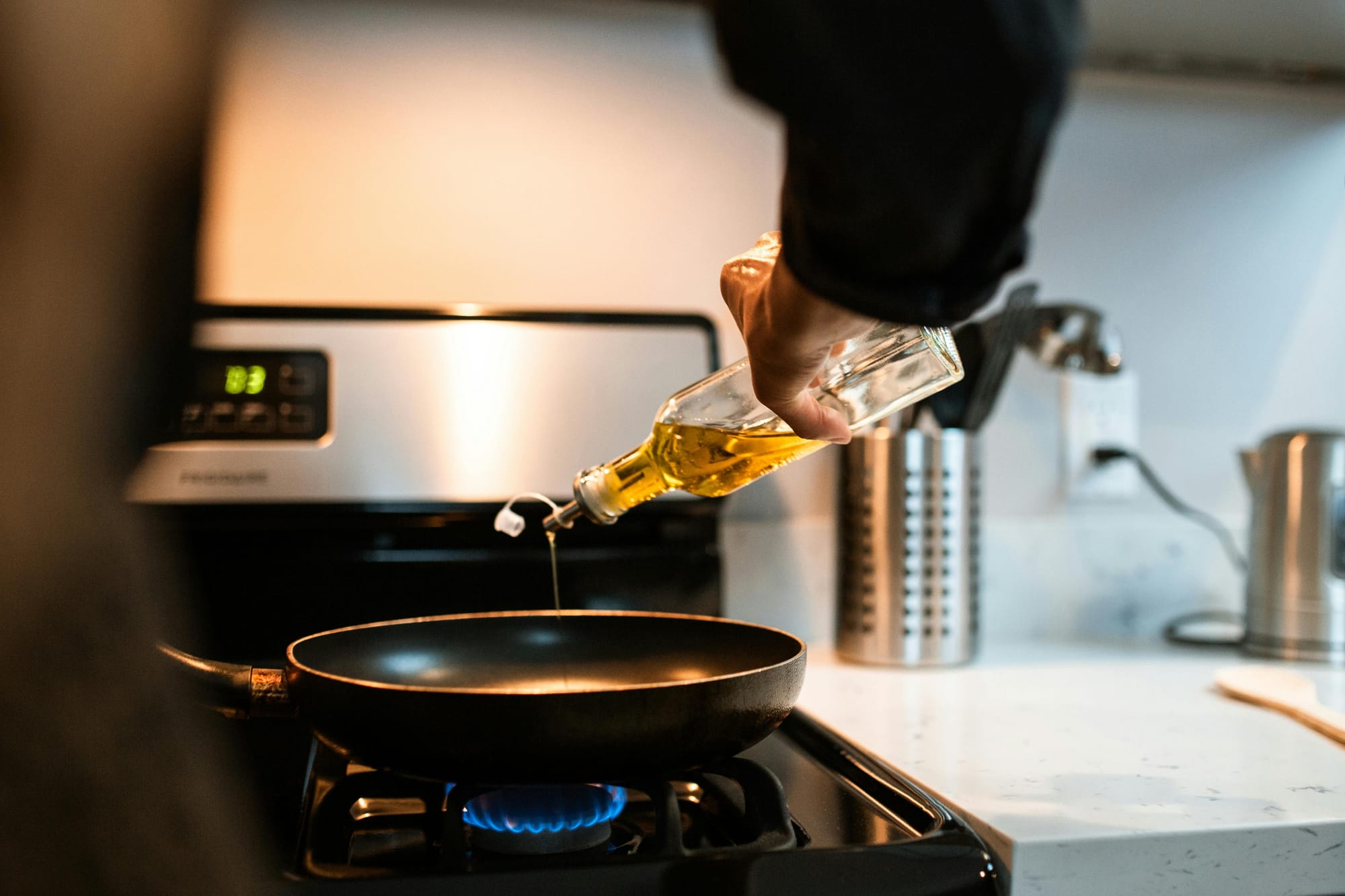Cooking oils have become a hot topic in recent years – with many people looking at which ones you should cook with, and which ones you shouldn't.
But why? Aren't all oils the same?
Not exactly.
Olive oil has been an oil that has been in this discussion quite heavily.
It's the oil that I personally have a preference for cooking with – mainly due to its taste profile, but also for its health benefits, and in particular its antioxidant profile.
But what about it's smoke point – can we successfully cook with it without ruining its quality?
What even is a 'smoke point'?
Some of the most popular oils and their smoke points can be found below:
| Culinary Oil | Smoke Point (°C) | Smoke Point (°F) |
|---|---|---|
| Extra Virgin Olive Oil | 160°C | 320°F |
| Virgin Olive Oil | 210°C | 410°F |
| Olive Oil (Refined) | 240°C | 465°F |
| Avocado Oil | 270°C | 520°F |
| Coconut Oil | 175°C | 350°F |
| Canola Oil | 205°C | 400°F |
| Sunflower Oil | 225°C | 440°F |
| Peanut Oil | 230°C | 450°F |
| Sesame Oil | 210°C | 410°F |
| Butter (Clarified/Ghee) | 250°C | 485°F |
Oil smoke points
As you can see, olive oil has a pretty low smoke point.
The smoke point of an oil is essentially the temperature at which it begins to break down and produce visible smoke.
Once an oil gets to this point, it can potentially begin to degrade and oxidise, producing compounds known as free radicals – unstable molecules that are pro-inflammatory and can contribute to chronic diseases and inflammation.
So with olive oil's relatively low smoke point, that means it's an oil we shouldn't cook with.
Right?
Well, not entirely.

There's good news for those who like to cook with olive oil.
Researchers at the University of Barcelona found that – although olive oil does indeed have a lower smoke point – the abundance of polyphenols present in the oil prevent it from completely degrading and oxidising.
The study did show that the olive oil polyphenol content degraded by 40% when cooked at 120 degrees celsius, and by 75% when cooked at 175 degrees celsius.
However this didn't fully degrade and remove any beneficial properties of the oil – and this quote from one of the researchers summed things up:
“Despite the decrease in concentration of polyphenols during the cooking process, this oil has a polyphenol level that reaches the declaration of health in accordance to the European regulation, which means it has properties that protect oxidation of LDL cholesterol particles" - Julian Lozano
So how does this translate to how we use olive oil when cooking?
Basically, don't scorch it.
There's no point in burning olive oil (or any oil for that matter) to the point where it creates a ton of smoke – and not only will that potentially produce free-radical causing compounds, but it will taste pretty bad as well.
Just use it at a medium-high heat to sauté and fry, ensuring that you don't burn it, and you'll be fine.
Olive oil is an oil that is widely known to be a staple in the Mediterranean diet - a dietary pattern that is universally to be beneficial for overall wellbeing.
We're talking fruits, vegetables, nuts and seeds, legumes, some fish and low-fat dairy, and a good amount of olive oil.
So not completely plant-based, but very plant-predominant.
And with the polyphenol potential of olive oil – and its anti-inflammatory and antioxidant capacity – it's clearly a food that we can get a lot out of when used in the right way.
You can cook with it – and by not completely torching it, you'll be all good to reap those benefits.
Stay healthy,
Jeff
PS: If you got value from this email, I have a very small favour to ask: if you felt it gave you a lot of value, I ask that you send it to two of your friends who you think might benefit from it. Catch you soon!
